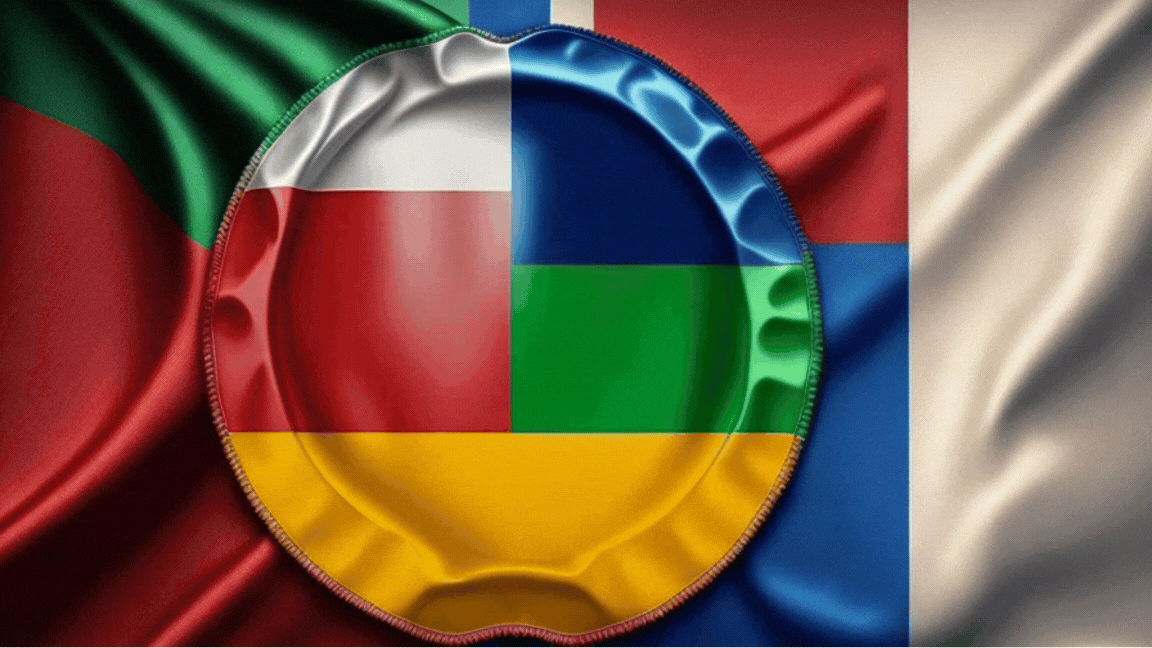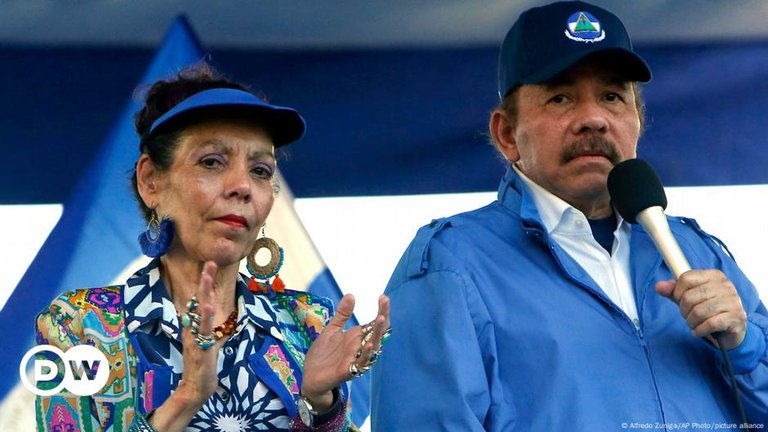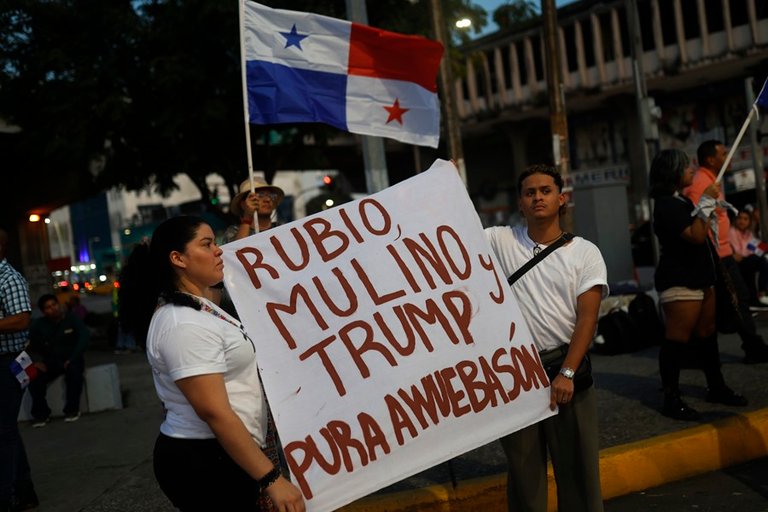The Latin American Report # 431

The legislative branch's blessing to a controversial constitutional reform sealing and shoring up more the Ortega-Murillo duet's grip over Nicaraguan politics resonated quite a bit in the media yesterday. The shackles placed by the Orange House on the powers that liberal democracy understands must be “independent”—as a sine qua non condition of the “rule of law”—are getting heavier and heavier. There is no interest in the Sandinistas in hiding their intention: “We have to go step by step and make it clear that Nicaragua's government is a revolutionary government, even if that hurts some people's feelings,” said the leader of Congress, which like the rest of the powers already answered in practice to Ortega, a relationship of subordination now mandated by the constitution, camouflaged under the category “coordination”. “These grotesque changes sound the death knell for the rule of law and basic freedoms in Nicaragua,” said a human rights expert assessing Managua's democratic drift for the UN.
Rosario Murillo is now as much a president as Ortega, a rare if not unique executive configuration. The Nicaraguan government is widely criticized for its harassment of the opposition. Reports of closures of civil society organizations or the banishment of critical actors stripped of their nationality—a dynamic now officially included in the constitution—are commonplace. Washington often lashes out at Ortega for these and other reasons. However, the level of sanctions imposed on Nicaragua is a far cry from those aimed at torpedoing the other two countries included in the so-called “Axis of Evil”—a category pushed by John Bolton while he served as National Security Advisor during Donald Trump's first term. In the case of this Central American country, the sanctions are mostly against individuals and not of a general nature, so the country does not have many restrictions to operate in the international market.
 Co-presidents (source of the image).
Co-presidents (source of the image).The Trump-mandated foreign assistance funding freeze also impacts Latin America
The decision to pause the multimillion-dollar-valued foreign assistance provided by the U.S. government around the world has sparked criticism and is already having a concrete effect in certain places, including some Latin American ones. Since his first stint in the Oval Office, when a forgotten Rex Tillerson reigned in Foggy Bottom, Trump has had it in his sights to decrease or rationalize the humongous U.S. spending on foreign policy. He tried to achieve this through the regular Congressional appropriations process but it didn't work out, because Capitol Hill imposed its stamp. I remember the Cuban case well. Trump zeroed out the USAID/State-run Cuba Democracy program account in the 2017 fiscal year budget request, despite it being a strategy advocated with much emotion by the Red camp. Tillerson then said they would seek to support “Cuban democracy fighters” in other ways when questioned about the proposal, which was ultimately rejected and the usual $20 million worth budgeted.
So now many Cuba-related projects that draw on federal funds fear the consequences of the freeze on assistance funding that the administration has arranged to review each program's alignment with Trump's foreign policy objectives. Marco Rubio said yesterday that “the U.S. government is not a charity,” remarking on the guidelines unveiled in his testimony before the committee he served on for many years during his confirmation hearing: the projects that will continue to be supported are those making “America safer, stronger or more prosperous.” Truth is that the Cuban democracy programs that emerged in 1995 after Bill Clinton's first federal grant to Freedom House constitute a critical sticking point between Washington and Havana, as the latter correctly depicts them as a highly disrespectful intrusion into its internal affairs. Incidentally, it is debatable that both these programs and the ineffective transmissions of Radio and TV Marti have been credited with more than 1.3 billion dollars allocated from Congress since 1985, when the U.S. society has so many demands for itself. Meanwhile, in Colombia, 18 U.S. helicopters assisting security forces there in the fight against drug trafficking are grounded due to the freezing of funds.
Noticias Caracol conoció que 22 helicópteros Black Hawk que Estados Unidos le había entregado a la Policía Nacional dejan de operar en las labores encomendadas en Colombia.
— Noticias Caracol (@NoticiasCaracol) January 30, 2025
Más en https://t.co/yqNEZK7rZ3 pic.twitter.com/tg2zemm8wb
Marco Rubio in the backyard
In Panama, activists and social organizations are mobilizing in protest against the shameless statements made by U.S. officials about the strategic inter-oceanic waterway, circumstantially integrated into the imperialist menu that the Resolute desk owner fancies. The mobilizations precede Rubio's visit to the Central American country, scheduled for the weekend. “The Panama Canal is for us our identity, it represents the struggle of this people for many years to free themselves from a colonial enclave,” said a female activist. Rubio now says he has “zero doubt” that China has a contingency plan to take advantage of the strategic position of a Hong Kong-based consortium that manages two ports at either end of the canal, making it “a direct threat.” “I would argue that the canal is already in the arms of the Chinese,” the Cuban-origin former senator added in an interview for a Sirius XM show. Assuming such bad faith on the part of the Chinese, and even assuming—with much haste—as a real possibility the unleashing of a military conflict between the two countries, the Trump White House pretends to dictate to Panama how to bid and to whom to grant a certain public good. This is a gross affront to Panamanian sovereignty.
 Source
SourceAnd this is all for our report today. I have referenced the sources dynamically in the text, and remember you can learn how and where to follow the LATAM trail news by reading my work here. Have a nice day.


John Bolton has been stripped of his security clearance by executive order. Bolton era policies are clearly not relevant today.
Sadly true, despite the USG - as are all governments - only justified as a mutual act of their population to benefit themselves. Since 1871 the USG has been transformed into a corporation that exists for it's own benefit, and to profit it's stakeholders - which are demonstrably not the civilian population of the United States of America, despite the duplicitous rhetoric of it's officials.
This is a negotiation tactic Trump intends to bring people to him so that he can gain benefits from providing foreign assistance. If you view Trump's actions as negotiation tactics it will largely become apparent why he is taking these actions. Huge engines of economic activity, as in Colombian drug interdiction, are demonstrably dependent on Trump's favor, and this will draw flies to the source of the crap they feed on.
Li-Kashing's control of Hutchison Ports PPC and both ends of the Panama canal is clearly a threat to US security, and Panama only exists at all because the US created it out of Colombia to enable the canal to be built without Colombian governmental involvement and such expenses. The USA landed forces in Central America innumerable times in the 20th Century in order to secure commercial enterprises control of governments there, and the people of Panama seem to have forgotten just how violence works. Hopefully the matter can be resolved without violence, which will only harm the people of Panama.
Thanks!
Sadly, at least in the Cuban case, the impact of Bolton's passage through the West Wing continues to resonate and affect us strongly. Bolton activated Title III of the Helms-Burton Act, deactivated an important agreement in the sports area, and designated the Cuban state-run oil importing company. All of these sanctions remain in place to this day. As far as Panama is concerned, if we accept this way of presenting the matter, we would say that it does not exist as a country at all. I will go much deeper into the historical aspect of this matter, but if you have any solid literature on the subject I would like to have it at hand as well. Thanks for your sound feedback again my friend, and best regards from the Island.
https://www.studycountry.com/wiki/why-was-panama-founded
This page provided the brief video with the basic historic facts, and by virtue of the numerous links contesting the statements on the site provides the ability to consider contrary claims and to come to your own conclusions. If you have reliable access to Yandex, I would recommend using it to search for more information because it is not controlled by the Western media and likely best enables independent sourcing of relevant discussion.